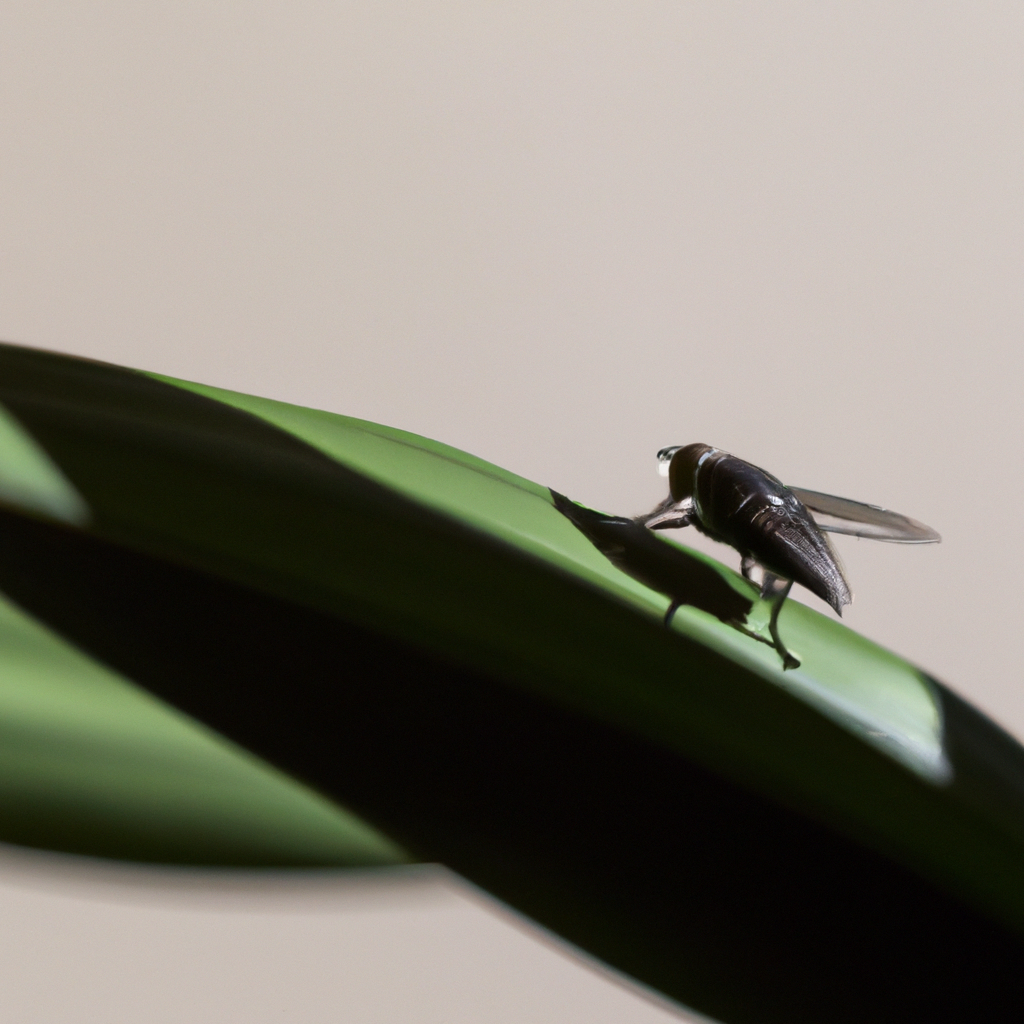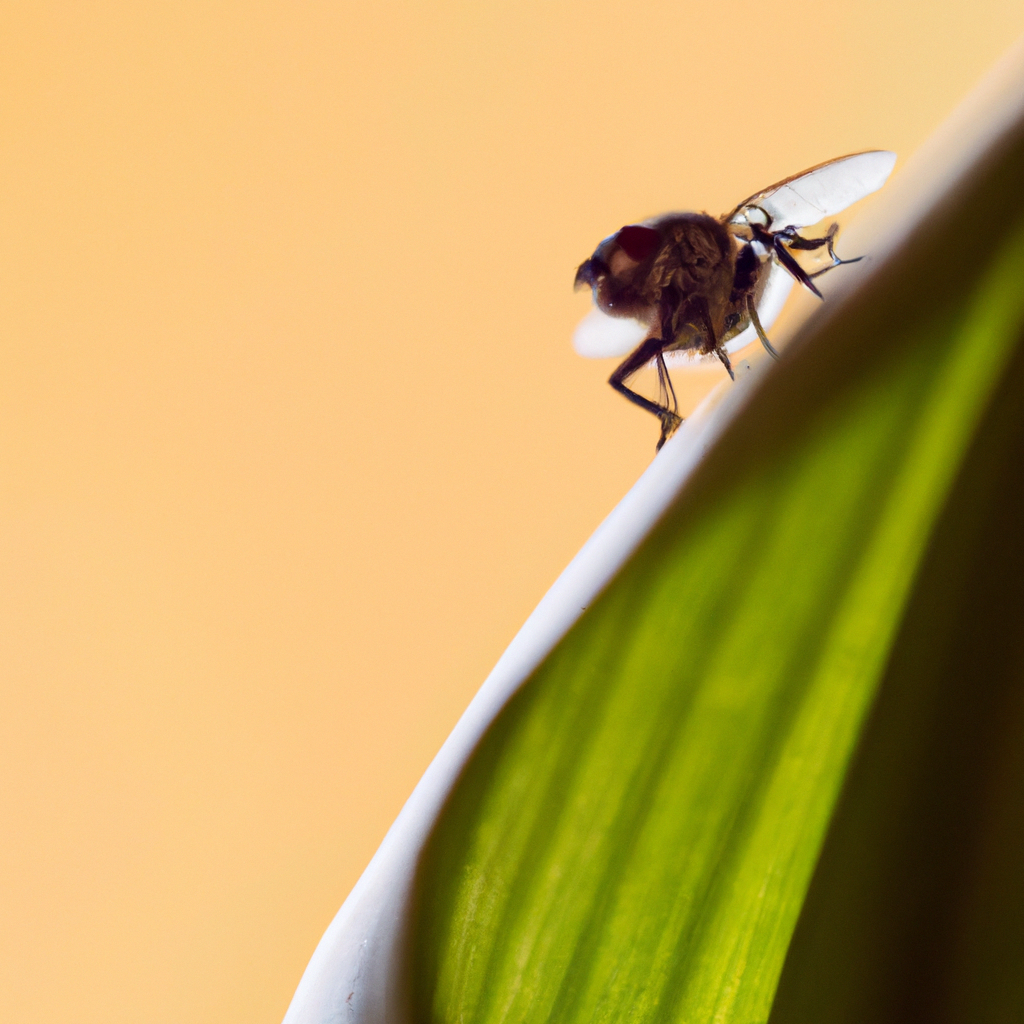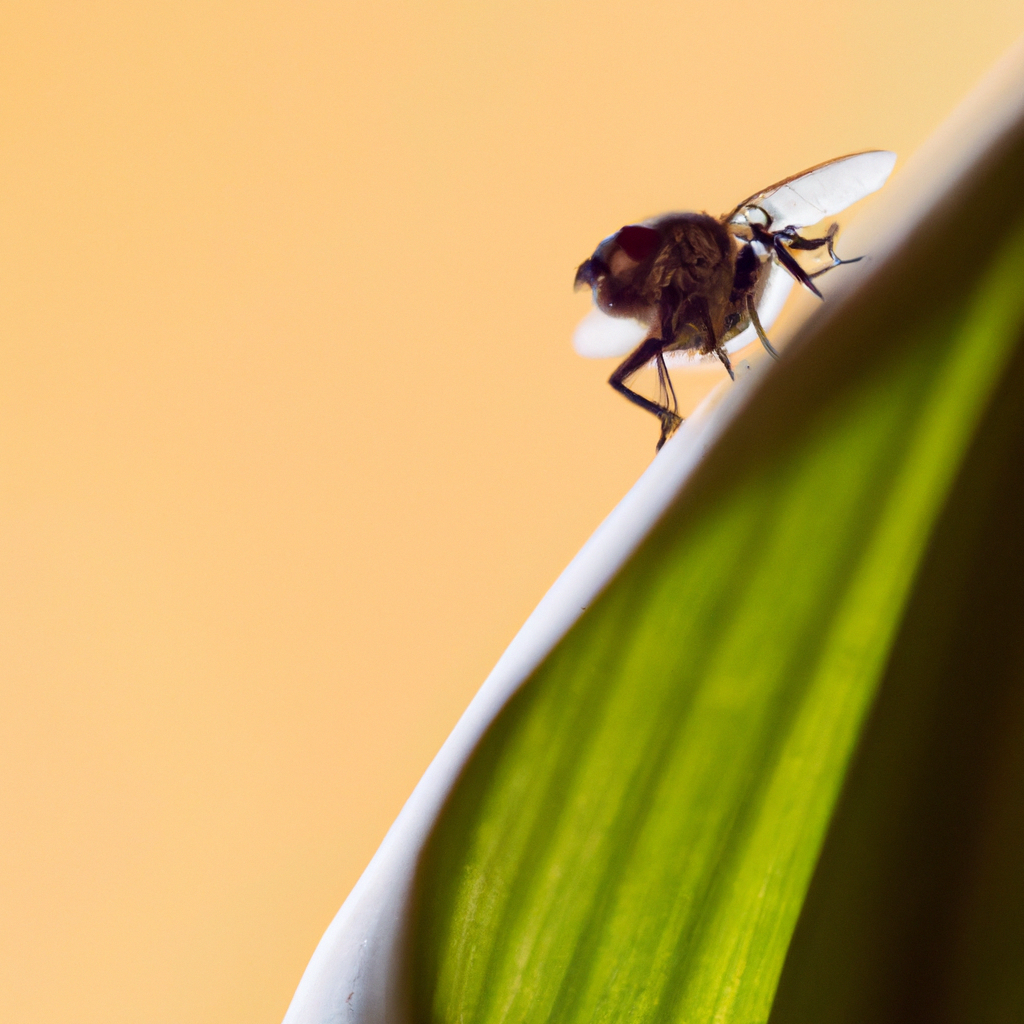Have you ever wondered why flies seem to have a particular fascination with your bedroom? You’re not alone. Many people find themselves facing this pesky problem, and the constant presence of these unwelcome visitors can be both irritating and concerning. In this article, we’ll explore some possible reasons why flies are invading your personal space and offer some practical solutions to help you reclaim your bedroom as a fly-free zone.

Common Reasons for Flies in the Bedroom
Lack of Screens on Windows and Doors
One common reason why flies may invade your bedroom is the lack of screens on windows and doors. Without proper protection, flies can easily enter your living space, attracted by the lights and the scent of food. Installing screens on your windows and doors acts as a barrier, preventing flies from entering your bedroom and other areas of your home.
Presence of Garbage or Organic Matter
Flies are attracted to garbage and organic matter, which provides them with a food source and a potential breeding ground. If you have garbage bins or organic waste in or near your bedroom, flies may be drawn to it. Ensure that garbage bins are tightly sealed and regularly emptied to discourage flies from congregating in your bedroom.
Attracted to Indoor Plants and Flowers
Indoor plants and flowers can be a beautiful addition to any bedroom, but they can also attract flies. Flies are attracted to the moisture and organic material present in soil and plant pots. If you notice an increase in flies in your bedroom, it may be helpful to minimize the number of indoor plants or relocate them to another area of your home.
Inadequate Cleaning and Sanitation
Maintaining a clean and sanitary bedroom is essential in preventing flies from invading your space. Flies are attracted to dirt, spills, and food particles left behind. Regularly vacuuming, dusting, and wiping down surfaces will help eliminate potential food sources for flies and discourage them from entering your bedroom.
Stagnant Water Sources
Stagnant water can act as a breeding ground for flies. If you have any sources of stagnant water in or near your bedroom, such as leaky pipes or potted plants with excessive water buildup, it could attract flies. It is important to address these issues promptly and eliminate any sources of stagnant water to prevent fly infestations.
Proximity to Outdoor Breeding Areas
If your bedroom is in close proximity to outdoor areas where flies commonly breed, such as garbage dumpsters or compost piles, you may experience an increase in fly activity. Flies can easily find their way into your bedroom from these nearby breeding sites. Taking steps to maintain a distance from these areas or implementing preventive measures can help minimize fly intrusion.
Exposure to Decaying Organic Material
Decaying organic material, such as rotting food or dead insects, can attract flies to your bedroom. Flies are attracted to the scent of decomposition and may seek it out. Regularly inspect your bedroom for any decaying organic material and promptly dispose of it to minimize fly attraction and infestation.
Unsealed Cracks and Openings
Flies are adept at finding small cracks and openings in windows, doors, and walls. If your bedroom has unsealed cracks or openings, flies can easily enter your living space. It is important to seal any gaps, repair damaged screens, and ensure proper insulation to prevent flies from entering your bedroom.
Attracted to Bright Lights at Night
Flies are often attracted to bright lights at night. If you have bright lights near or inside your bedroom, it can act as a beacon for flies, drawing them towards your living space. Consider using window covers or dimmer lights at night to minimize fly attraction and keep them out of your bedroom.
Uncovered Food and Trash Bins
Leaving uncovered food or trash bins in your bedroom can attract flies. Flies are particularly drawn to food odors and can quickly become a nuisance if they find a readily available food source. Always make sure to cover food items and tightly seal trash bins to prevent flies from being tempted to enter your bedroom.
Effects of Flies in the Bedroom
Disease Transmission
One of the significant concerns associated with flies in the bedroom is their potential to transmit diseases. Flies are known to carry and spread various pathogens, including bacteria and viruses, that can cause illnesses in humans. When flies land on surfaces in your bedroom, they can transfer these disease-causing microorganisms, increasing the risk of infection.
Allergic Reactions
Certain individuals may be allergic to fly saliva or their feces. When a fly bites or lands on the skin, it may trigger an allergic reaction in sensitive individuals. Symptoms can range from mild skin irritation and itching to more severe allergic reactions such as hives or difficulty breathing. For those with allergies, the presence of flies in the bedroom can be particularly problematic.
Disruption of Sleep and Peace
The constant buzzing and movement of flies in the bedroom can disrupt your sleep and peace. The annoyance of having flies flying around can make it challenging to relax, fall asleep, or stay asleep throughout the night. The resulting lack of quality sleep can have adverse effects on your overall well-being and daily functioning.
Food Contamination
Flies are known to feed on various types of food, including human food. When they land on your food or food preparation surfaces, they can contaminate it with bacteria and other pathogens carried on their bodies. Consuming contaminated food can lead to foodborne illnesses, ranging from mild gastrointestinal discomfort to more severe infections.
Breeding and Infestation
If the conditions within your bedroom are favorable to flies, such as the presence of organic matter or a suitable breeding ground, it could lead to fly infestations. Flies reproduce quickly, and a small population can rapidly become a significant problem. The presence of fly larvae, eggs, or pupae in your bedroom indicates an infestation that requires immediate action to eliminate.

How to Prevent Flies from Invading the Bedroom
Install Window and Door Screens
Installing screens on windows and doors is an effective way to prevent flies from entering your bedroom. Make sure the screens are properly fitted and without any holes or tears that flies can exploit. Regularly inspect and repair any damages to the screens to maintain their effectiveness in keeping flies out.
Proper Garbage Disposal and Organic Waste Management
Proper garbage disposal is crucial in minimizing fly attraction. Seal trash bags tightly and dispose of them in sealed outdoor bins away from your bedroom. Clean the bins regularly to eliminate food residue and odors that can attract flies. Additionally, manage organic waste properly to prevent flies from being drawn to decomposing organic matter.
Minimize Indoor Plants and Flowers
If flies are consistently drawn to your bedroom due to indoor plants and flowers, consider reducing the number of plants or relocating them to other areas of your home. Alternatives such as artificial plants or low-maintenance plants that require less watering and organic material can be considered to minimize fly attraction.
Regular Cleaning and Sanitation
Maintaining a clean and sanitary bedroom is essential in preventing fly infestations. Regularly vacuum, dust, and mop floors to remove any food particles or organic matter that may attract flies. Wipe down surfaces, especially in the kitchen area, to eliminate potential food sources for flies.
Eliminate Stagnant Water Sources
Identify and eliminate any sources of stagnant water in or near your bedroom. Fix any leaky pipes or faucets promptly and ensure potted plants are not sitting in excess water. By removing these breeding grounds, you can significantly reduce the risk of fly infestations.
Maintain a Distance from Outdoor Breeding Areas
If possible, try to maintain a distance between your bedroom and known outdoor breeding areas for flies, such as garbage dumpsters or compost piles. This can help minimize the chances of flies making their way into your bedroom and reduce the likelihood of fly infestations.
Prompt Disposal of Decaying Organic Material
Regularly check your bedroom for any decaying organic material, such as rotting food or dead insects. Promptly dispose of them in sealed bags or containers to prevent flies from being attracted to the scent of decomposition. Effective waste management plays a crucial role in preventing fly infestations.
Seal Cracks and Openings
Inspect your bedroom for any cracks or openings that flies can use as entry points. Seal these gaps with caulk or other appropriate materials to prevent flies from entering your living space. Pay particular attention to windows, doors, and walls, as these are common areas where flies can find their way in.
Use Window Covers or Dim Lights at Night
To minimize fly attraction to bright lights at night, consider using window covers that block or diffuse the light. This can help reduce the visibility of your bedroom from the outside and deter flies from being drawn to the light source. Alternatively, you can opt for dimmer lights or softer lighting options in your bedroom to make it less appealing to flies.
Secure Food and Trash Bins
Ensure that all food items in your bedroom are properly stored and covered to prevent flies from accessing them. Keep any perishable food items in sealed containers and promptly clean up any spills. Additionally, make sure that trash bins in your bedroom are tightly closed to prevent flies from being attracted to the odor of discarded food.
By addressing the common reasons for flies in the bedroom and taking preventive measures, you can create an environment that is less attractive to flies. Implementing these strategies not only helps keep your bedroom clean and comfortable but also reduces the risk of fly-borne diseases, allergies, and the frustration of dealing with fly infestations. Remember to regularly maintain the cleanliness and sanitation of your bedroom to ensure a fly-free and peaceful sleeping space.




